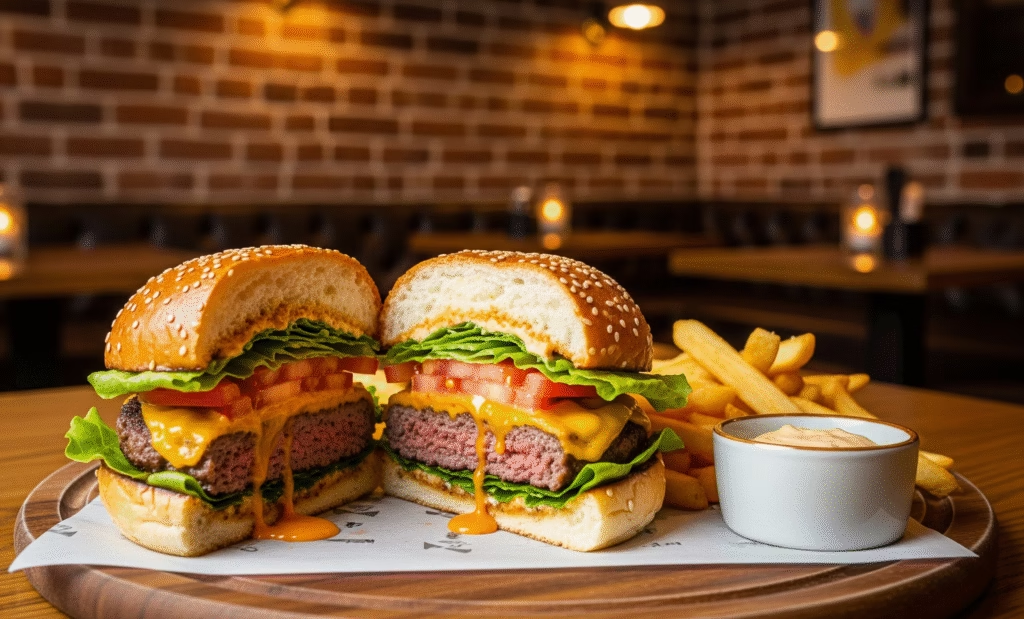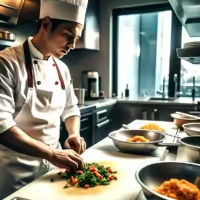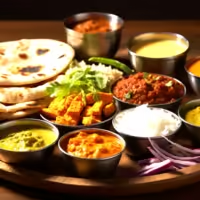
Posted by Reviewtale
- Jul 22, 2025
- 577
- 0
How to Become a Food Reviewer in India


Introduction
In recent years, the culinary world has experienced a significant transformation, particularly with the rise of food reviewers. This profession has gained traction in India as more individuals seek to share their dining experiences and insights, catering to an audience that is increasingly interested in gastronomy. Food reviewers play a pivotal role in shaping consumer choices, influencing restaurant popularity, and even impacting food trends across the country. In this article, we will explore the essentials of becoming a food reviewer in India, covering everything from foundational knowledge to monetization strategies.
The Growing Popularity of Food Reviews
The surge in popularity of food reviews can largely be attributed to the explosion of social media platforms and food blogs. Content creators are now able to reach a broader audience, and consumers are more inclined to consult reviews before deciding where to dine. The democratization of food criticism has encouraged a diverse range of voices to share their culinary experiences, enriching the dining culture in India. People now look for authenticity and relatability in reviews, which has further elevated the importance of food reviewers.
Importance of Food Reviewers in the Culinary Landscape
Food reviewers serve as a bridge between restaurants and customers, providing valuable insights into menu offerings, ambiance, and service quality. Their reviews can significantly influence a restaurant’s reputation and customer footfall. By sharing detailed evaluations, they contribute to a culture of accountability in the culinary world, encouraging restaurants to maintain high standards. Additionally, food reviewers often highlight regional cuisines and lesser-known eateries, promoting culinary diversity and supporting local businesses. To have some basic knowledge about the importance of food reviews for a restaurant, click here.
Understanding the Role of a Food Reviewer
What Does a Food Reviewer Do?
A food reviewer’s primary responsibility is to assess various dining experiences and articulate their observations in a manner that informs and engages readers. This includes evaluating food quality, presentation, service, and overall ambiance. Food reviewers often visit multiple restaurants, from high-end dining establishments to street food vendors, to provide a well-rounded perspective on the culinary landscape. Their reviews may be shared through blogs, social media, or various food review platforms, allowing them to reach a wide audience.
Skills Required to Become a Food Reviewer
To become a successful food reviewer, one must possess a combination of culinary knowledge and writing skills. A deep understanding of flavors, cooking techniques, and regional cuisines is essential. Strong observational skills and the ability to articulate one’s thoughts clearly and engagingly are equally important. Additionally, food reviewers should be adaptable and open to exploring various dining experiences, as well as being sensitive to cultural and dietary preferences.
Getting Started in Food Reviewing
Building a Strong Foundation in Food Knowledge
Before diving into food reviewing, it is crucial to establish a solid foundation of food knowledge. This can be achieved through various means, such as culinary courses, reading food literature, or even gaining practical experience in kitchens. Understanding ingredients, cooking methods, and presentation styles will enable reviewers to provide more insightful commentary on their experiences. This knowledge not only enhances credibility but also enriches the reviews themselves.
Choosing Your Niche in Food Reviews
Identifying a niche can set a food reviewer apart from the competition and create a unique brand. Some reviewers may focus on specific cuisines, such as South Indian or Punjabi food, while others may emphasize dietary preferences like vegan or gluten-free options. Finding a niche allows reviewers to develop a loyal following and become a go-to source for that particular segment of dining. Additionally, niches can evolve over time as the reviewer explores new culinary territories.
Creating a Food Review Blog or Platform
Establishing a blog or an online platform is a significant step for aspiring food reviewers. A well-designed website can showcase reviews, photographs, and personal branding. Content should be posted regularly to build an audience and maintain engagement. Consider using platforms like WordPress or Blogger, which offer user-friendly interfaces and customizable templates. Social media channels such as Instagram and Facebook can also be leveraged to promote blog content and connect with readers.
Developing Your Writing Skills
How to Write Engaging Restaurant Reviews
Writing engaging reviews requires a blend of storytelling and critical analysis. Start by painting a vivid picture of the dining experience, from the moment of arrival to the last bite. Use descriptive language to evoke the senses, allowing readers to visualize and feel the experience as if they were there. While personal anecdotes can enrich the narrative, it’s equally important to maintain an objective stance by balancing subjective opinions with factual observations. For more ideas, read our article on ‘How to write the perfect food review’.
Elements of a Great Food Review
Several key elements contribute to an effective food review. First, clarity is essential; readers should easily understand the points being made. Secondly, structure plays a vital role; a well-organized review with clear headings and subheadings will enhance readability. Finally, a concise conclusion summarizing the overall experience, along with a recommendation or rating, provides readers with a quick takeaway. Ensuring these elements are present will elevate the quality of your reviews.
Understanding Food Photography Basics
In today’s digital age, food photography has become an integral aspect of food reviewing. Great images can significantly enhance the appeal of your reviews and draw in a larger audience. To improve your food photography skills, invest time in learning about basic composition, lighting, and editing techniques. Experiment with different angles and settings to capture the essence of the dishes you review. A well-composed photograph can complement your written review and create a more immersive experience for readers.
Networking and Building Credibility
Connecting with Other Food Reviewers
Networking is a vital component of establishing oneself in the food reviewing community. Engaging with other reviewers can provide insights, support, and collaboration opportunities. Attend food events, participate in online forums, and connect with fellow reviewers on social media platforms. Building relationships within the community can also lead to shared promotions, guest posts, or even collaborative reviews, thus expanding your reach and influence. To get connected with our group on Facebook: ReviewTale Scout, click here.
Engaging with Restaurants and Chefs
Building a rapport with local restaurants and chefs can prove beneficial for food reviewers. By establishing relationships, reviewers may gain access to exclusive tastings, events, or behind-the-scenes experiences. This access not only enriches personal experiences but also provides unique content for reviews. Approach restaurant owners and chefs with courtesy, expressing genuine interest in their culinary offerings while being professional and respectful.
Utilizing Social Media for Exposure
Social media platforms are powerful tools for food reviewers aiming to increase visibility and credibility. Instagram, for instance, is ideal for sharing food photography and short reviews, while platforms like Twitter can be used for quick updates and interactions. Engaging with followers through comments, live sessions, and polls can foster a sense of community. Additionally, using relevant hashtags can increase the discoverability of your content and attract more readers.
Monetizing Your Food Reviewing Skills
Exploring Different Revenue Streams
Once established, food reviewers can explore various monetization avenues. Sponsored content, affiliate marketing, and collaborations with brands are some of the common methods. Sponsored posts allow companies to pay for reviews or features, while affiliate marketing offers commissions for driving traffic to specific products or services. It’s crucial to maintain authenticity; reviewers should only promote products they genuinely believe in to retain their audience’s trust.
Collaborating with Brands and Restaurants
Collaboration with brands and restaurants can yield lucrative opportunities. Many companies are keen to partner with food reviewers to promote their offerings through reviews or social media campaigns. Establishing a clear value proposition—outlining what you can offer in terms of exposure and audience engagement—can help in negotiating these partnerships. Always ensure that collaborations align with your brand values and maintain transparency with your audience regarding sponsored content.
Staying Updated with Food Trends
Following Food Industry News and Events
To remain relevant as a food reviewer, it is essential to stay updated with the latest trends and developments in the food industry. Subscribing to food magazines, following culinary influencers, and participating in workshops or webinars can provide valuable insights into changing consumer preferences and emerging cuisines. Being well-informed will not only enhance your reviews but also establish you as a credible voice in the culinary community.
Attending Food Festivals and Tastings
Food festivals and tastings are excellent opportunities for food reviewers to explore diverse culinary offerings and connect with chefs and food enthusiasts. These events often feature a variety of cuisines and innovative dishes, providing rich material for reviews. Attending such gatherings allows reviewers to gather firsthand experiences, meet industry professionals, and engage with their audience in an interactive manner. Documenting these experiences can provide captivating content for blogs or social media posts.
Conclusion
Recap of Key Steps to Become a Food Reviewer
In summary, becoming a food reviewer in India is a rewarding journey that involves building culinary knowledge, developing writing and photography skills, and engaging in networking. Identifying a niche, creating an online platform, and exploring monetization avenues further contribute to a successful career in food reviewing. It is essential to maintain authenticity and stay updated with industry trends to resonate with an ever-evolving audience.
Encouragement to Explore the Culinary World
The world of food is vast and ever-changing, offering endless opportunities for exploration and discovery. Whether you’re sharing experiences through written reviews or captivating food photography, your unique voice can make a significant impact in the culinary landscape. Embrace your passion for food, connect with others, and let your insights guide the culinary experiences of those around you.
Join ReviewTaleScout and Elevate Your Journey in Food Reviews
If you are truly passionate about food reviews and want to take your journey a step further, consider joining ReviewTaleScout — a community-driven initiative by Review Tale. As a Scout Member, you would not just be reviewing dishes; you will gain access to exclusive restaurant invitations, themed review campaigns, and collaborative projects that amplify your visibility in the food reviewing space. Whether you’re running your own food blog, managing a culinary page, or just getting started, being part of ReviewTaleScout helps you build your portfolio while working alongside like-minded reviewers. It’s an opportunity to grow with a team while nurturing your own brand.
Register now as a ReviewTaleScout member and become a recognized name in the Indian food reviewing landscape.
FAQs
What qualifications do I need to become a food reviewer?
There are no formal qualifications required to become a food reviewer, but having a strong knowledge of food, writing skills, and a genuine passion for dining experiences will greatly enhance your credibility.
How do I start a food review blog?
To start a food review blog, choose a blogging platform, select a domain name, and design your website. Begin by writing reviews of local restaurants, sharing your experiences, and promoting your blog through social media.
Can I make a living as a food reviewer?
Yes, many food reviewers monetize their content through sponsored posts, affiliate marketing, and collaborations with brands. Building a loyal audience is key to achieving financial success in this field.
What should I include in my food reviews?
Your food reviews should include observations about food quality, presentation, service, ambiance, and personal experiences. Including photographs and a clear structure enhances the readability of your reviews.
How can I improve my food photography skills?
Improving your food photography skills involves practicing composition, lighting, and editing techniques. Experiment with different angles and settings to capture the beauty of the dishes you review.
Recommended Posts
- Feb 1, 2025
- 484 read
How Behind-the-Scenes Food Content Boosts Visibility & Engagement Table of ContentsIntroductionThe Power...
Read Article- Jan 29, 2025
- 474 read
7 Effective Ways to Use Customer Reviews to Build Trust Table of...
Read Article- Jan 26, 2025
- 1021 read
What is Thali? A Traditional Indian Meal on One Plate India, a...
Read Article- Jan 19, 2025
- 911 read
The Story Behind Your Business: How Sharing It Attracts Customers & Builds...
Read Article- Jan 18, 2025
- 792 read
Unforgettable Dining Experiences: How a Unique Selling Proposition Can Elevate Your Restaurant...
Read Article- Jan 16, 2025
- 1525 read
What Unique Aspects of Your Restaurant, Cloud Kitchen, or Café Set You...
Read Article- Jan 12, 2025
- 796 read
How to Remove Negative Reviews From Google? Negative reviews on Google can...
Read Article- Jan 3, 2025
- 482 read
Table of Contents IntroductionThe Origins of Fast FoodNutritional Myths and RealitiesConvenience vs....
Read Article- Dec 25, 2024
- 509 read
6 Essential Steps for Restaurants: Masterfully Choose the Right Target Customers Choosing...
Read Article- Nov 16, 2024
- 443 read
Tips and Tricks to Optimize Your Restaurant Profile: Improve Your Online Visibility...
Read Article









